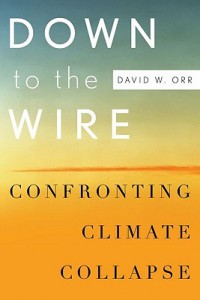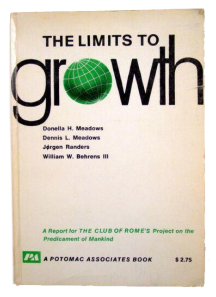Transition Culture has moved
I no longer blog on this site. You can now find me, my general blogs, and the work I am doing researching my forthcoming book on imagination, on my new blog.
Come find me at robhopkins.net
Archive for “Energy” category
Showing results 116 - 120 of 360 for the category: Energy.
22 Mar 2010

A while ago, at a Soil Association event in London, I found myself on a panel with Phillip Blond of ResPublica, and was really impressed by his insightful thinking on how politics might best enable the process of localisation. Phillip’s book. ‘Red Tory’ is due to be published in a couple of weeks, and I was delighted that Phillip agreed to do an interview about his thinking.
So, Phillip, perhaps I might start by asking what is ResPublica?
ResPublica was launched officially by David Cameron last year, and what we’re really about is trying to produce, or mainstream, genuinely radical new ideas for changing the current dispensation. In our view the agendas of the old Left and the old Right, those of the last 30 years, have run out of steam. Some were necessary at some point, but neither are delivering now and we need a new political settlement and a new middle ground, and we are interested in crafting with others that vision and talking about how to realise it. That’s really what Respublica is about, our strap line is “changing the terms of the debate” and that’s what we’d like to do”.
Read more»
19 Mar 2010
 As somebody who has lived a long time immersed in climate data and environmental information and has lived with your nose up against the reality of that for a long time, how do you cope with that? What are your coping mechanisms? Knowing what you know, how does it affect how you live your life?
As somebody who has lived a long time immersed in climate data and environmental information and has lived with your nose up against the reality of that for a long time, how do you cope with that? What are your coping mechanisms? Knowing what you know, how does it affect how you live your life?
There is something to TS Elliot’s statement that humankind cannot bear too much reality. Not totally, but clearly if you come down with cancer or heart disease you want the truth. Ecological truths are harder for us to absorb and the pain of the world, not many of us can face this. A Canadian wildlife guy, John Livingstone, wrote some brilliant stuff, he really felt nature, and when he saw what was happening, extinctions and so forth, he wrote these outraged, impassioned columns, but it always amazes me that more people aren’t angry about this.
Read more»
18 Mar 2010
 How do you see the relationship between sustainability and resilience as concepts? Is resilience part of sustainability? Is sustainability part of resilience?
How do you see the relationship between sustainability and resilience as concepts? Is resilience part of sustainability? Is sustainability part of resilience?
I guess for me sustainability is kind of a boring word but we’re stuck with it. But I tend to like resilience because it implies an active disposition to be able to withstand, it’s more of an engineering and mathematical term, but to be able to withstand disturbances. Some parameters change, some factors shift, and the system is able to adjust. There’s enough slack in the system that it works. So for me, at a minimum, sustainability implies resilience. In any definition of sustainability the system has got to be resilient to disturbances.
Read more»
17 Mar 2010

David Orr in London. Note the offending highly energy wasteful chandeliers behind him (referred to in the interview)
David Orr was in the UK recently, and the two of us were part of a panel at an event organised by the Prince’s Foundation for the Built Environment. After the event, we retired to the bar of a rather grand London hotel, and chatted for an hour about energy, climate change, the Precautionary Principle, Transition and whether or not we are beyond talk of ‘solutions’. Part two will follow shortly.
So, how would you introduce yourself?
I’m David Orr. I teach at Oberlin College in Ohio and I also work as Senior Advisor to the President of the college on environmental issues generally, but specifically on the redevelopment of the town and the college to carbon neutrality, a 20,000 acre green belt and the revitalised downtown corridor.
Read more»
12 Mar 2010

A fabulous piece by Richard Heinberg. Great to read him being optimistic, well. in a Heinbergy kind of way. I also read this piece as an early, brief version of the history of the peak oil/relocalisation/Transition movement that someone will inevitably write one day…. One correction though, ‘Transition Handbook’ wasn’t my PhD, unfortunely I am still flogging away at that!!
What if the economy doesn’t recover? (From Post Carbon Institute)
In 2008 the U.S. economy tripped down a steep, rocky slope. Employment levels plummeted; so did purchases of autos and other consumer goods. Property values crashed; foreclosure and bankruptcy rates bled. For states, counties, cities, and towns; for manufacturers, retailers, and middle- and low-income families, the consequences were—and continue to be—catastrophic. Other nations were soon caught up in the undertow.
Read more»






